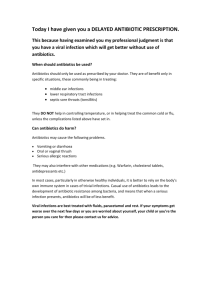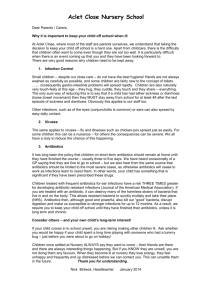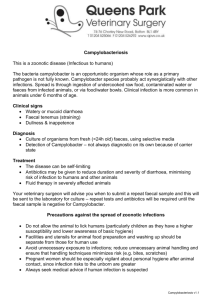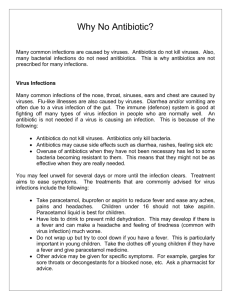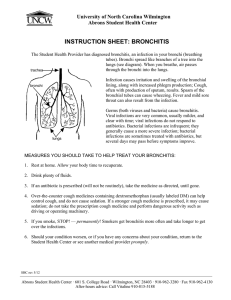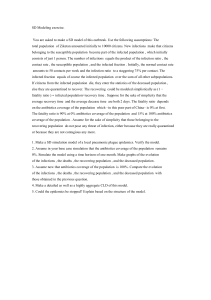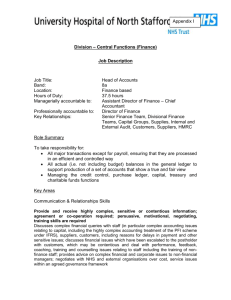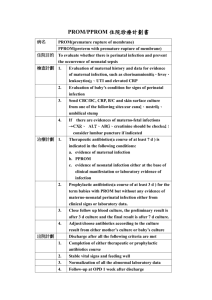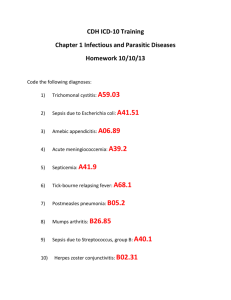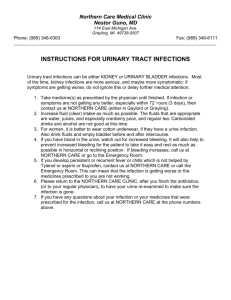Self-care guide to help you treat your infection
advertisement
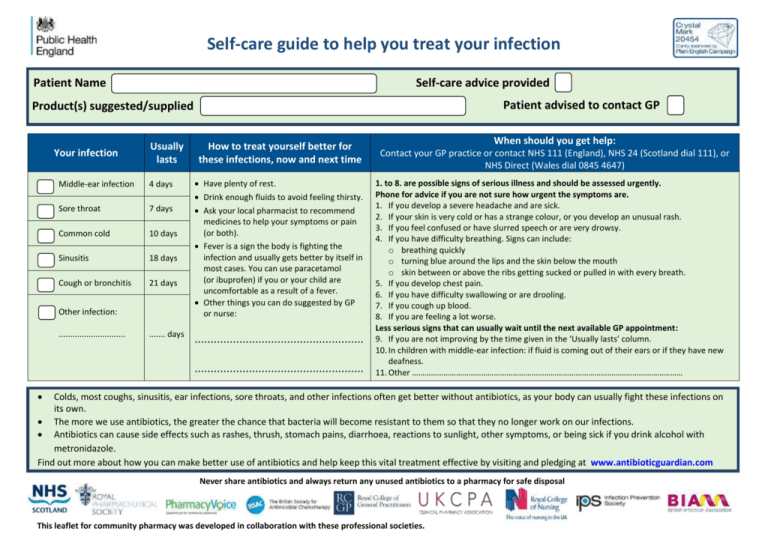
Self-care guide to help you treat your infection Patient Name Self-care advice provided Patient advised to contact GP Product(s) suggested/supplied Your infection Usually lasts Middle-ear infection 4 days Sore throat 7 days Common cold 10 days Sinusitis 18 days Cough or bronchitis 21 days Other infection: ............................. ....... days How to treat yourself better for these infections, now and next time Have plenty of rest. Drink enough fluids to avoid feeling thirsty. Ask your local pharmacist to recommend medicines to help your symptoms or pain (or both). Fever is a sign the body is fighting the infection and usually gets better by itself in most cases. You can use paracetamol (or ibuprofen) if you or your child are uncomfortable as a result of a fever. Other things you can do suggested by GP or nurse: ..................................................... ..................................................... When should you get help: Contact your GP practice or contact NHS 111 (England), NHS 24 (Scotland dial 111), or NHS Direct (Wales dial 0845 4647) 1. to 8. are possible signs of serious illness and should be assessed urgently. Phone for advice if you are not sure how urgent the symptoms are. 1. If you develop a severe headache and are sick. 2. If your skin is very cold or has a strange colour, or you develop an unusual rash. 3. If you feel confused or have slurred speech or are very drowsy. 4. If you have difficulty breathing. Signs can include: o breathing quickly o turning blue around the lips and the skin below the mouth o skin between or above the ribs getting sucked or pulled in with every breath. 5. If you develop chest pain. 6. If you have difficulty swallowing or are drooling. 7. If you cough up blood. 8. If you are feeling a lot worse. Less serious signs that can usually wait until the next available GP appointment: 9. If you are not improving by the time given in the ‘Usually lasts’ column. 10. In children with middle-ear infection: if fluid is coming out of their ears or if they have new deafness. 11. Other ………………………………………………………………………………………………………………… Colds, most coughs, sinusitis, ear infections, sore throats, and other infections often get better without antibiotics, as your body can usually fight these infections on its own. The more we use antibiotics, the greater the chance that bacteria will become resistant to them so that they no longer work on our infections. Antibiotics can cause side effects such as rashes, thrush, stomach pains, diarrhoea, reactions to sunlight, other symptoms, or being sick if you drink alcohol with metronidazole. Find out more about how you can make better use of antibiotics and help keep this vital treatment effective by visiting and pledging at www.antibioticguardian.com Never share antibiotics and always return any unused antibiotics to a pharmacy for safe disposal This leaflet for community pharmacy was developed in collaboration with these professional societies.
